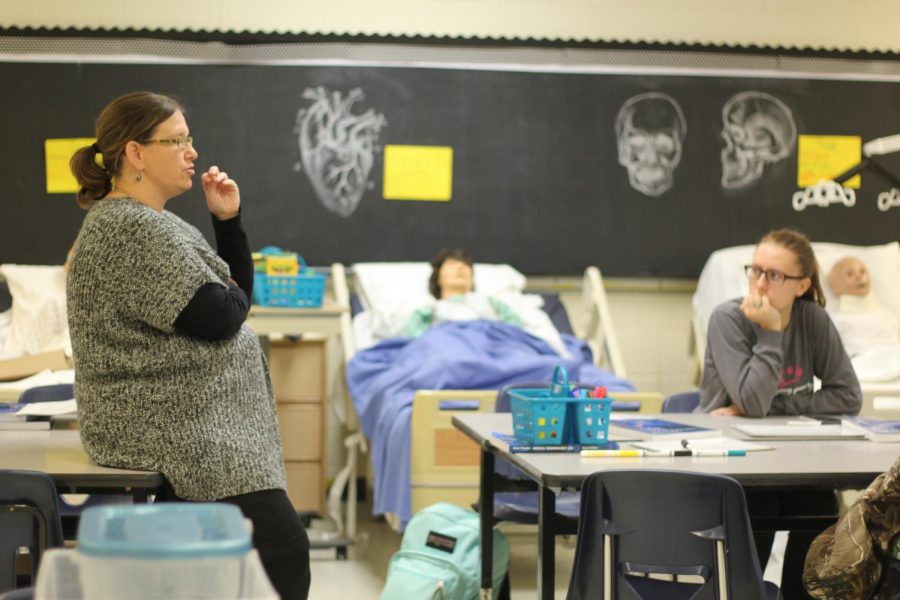Expectations For This Year’s Blood Drive
Not all heroes wear capes; some wear band-aids.
This year’s school blood drive is scheduled for Friday Nov. 3 from 8 a.m. to 1 p.m. in the College and Career Center (CCC) gym and students are already signing up to donate.
Laura Godbold’s medical class will be assisting with the drive. Making healthy choices the days before and after donating is essential. The donations will be distributed to local hospitals to help those in need of blood transfusions.
Students can sign up now through Friday Oct. 27, and the American Red Cross Association will be sponsoring the event. The association dates back to 1881 and is a humanitarian organization that also helps with disaster relief, training and emergency services. The organization developed the first nationwide civilian blood program and provides more than 40 percent of blood products in the US today.
They have buildings set up across the nation and commonly send trained technicians that assist with blood drives. Red Cross technicians will be the ones taking blood at the upcoming drive. Godbold’s third period Acute Care Basic Skills class will be assisting the Red Cross with registration and giving out snacks on the day of the event. They have been making preparations for the past week.
The drive has been sponsored by the school’s National Honors Society (NHS) in the past but this is the first year that Godbold and her class have coordinated the drive. Students from her class have made posters, signed people up and set goals for how many donations they’ll get. The goal is currently set at 125. So far, close to a hundred people have signed up.
Before deciding to donate there are a few things to consider. There are certain requirements and restrictions that determine whether or not you can donate. You have to be at least 16-years-old and have a signed parental consent form. If you’re an athlete or pregnant you’re prohibited from donating. If you have any health issues related to blood, blood pressure or blood sugar such as anemia, iron deficiency, hemophilia, diabetes or hypoglycemia it’s not recommended for safety reasons.
Even if you’re qualified to donate, it’s important to eat and drink enough throughout the day to prevent nausea or fainting. “Eat breakfast before you go, something kind of filling. Definitely don’t go on an empty stomach,” said senior Patience Robison, who is a three time blood donor. It’s also important to get enough sleep because the body has to replace blood that it’s lost. It takes about 24 to 48 hours for the replacement.
Any type of person of any age can benefit from the donations. “One donation can save up to three lives. We never know when we’re gonna be in need. Since I’m a nurse, I’ve transfused probably hundreds of bags of blood. So, it’s kind of neat because I see it come full circle and I see that it saves people, people from babies to adults. It makes a huge difference,” said Godbold. Situations in which someone would need a blood transfusion include surgery, serious injuries, kidney diseases, cancer, anemia and any other causes for major blood loss.
Some feel hesitant to sign up because of worries about pain or getting sick. However, it’s usually not as bad as people expect it to be. “The first time I was really nervous. I was kind of freaking out. I heard that it really hurt and I heard that I was gonna be really sick afterwards, but I knew it would be a really good experience. So, I went anyways and it did hurt a little bit but not nearly as bad as I thought it would,” said Robison. It takes 10 to 15 minutes to have blood drawn and about an hour for the whole process, but it only takes a few minutes to sign up. To sign up see Godbold or the senior nursing students who will be in the cafeteria during fifth period.




